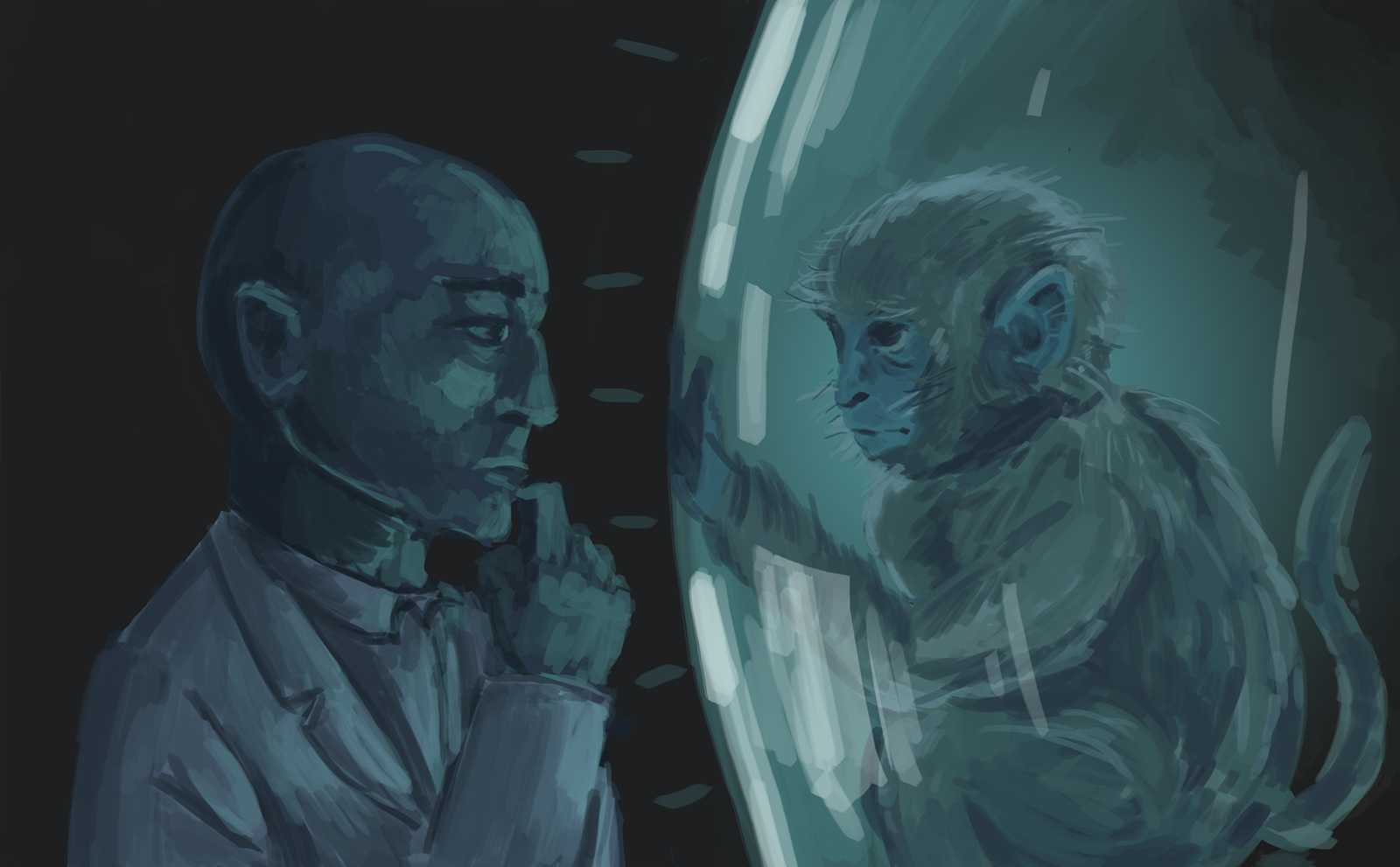Anthropology professor helps create website to track baby monkey in Costa Rica

(Thomas Tran/Daily Bruin)
By Nidhi Upadhyay
Oct. 3, 2018 1:32 a.m.
A new website allows students to virtually follow a monkey through a jungle more than 3,000 miles from UCLA in an effort to engage the public with science through technology.
Susan Perry, a professor in the department of anthropology , led the project and has been studying capuchin monkeys in the Lomas Barbudal Biological Reserve in Costa Rica since 1990. HowToBeAMonkey.org offers insight into the daily routine of a baby capuchin called Winslow Homer, as well as the team of researchers who track the monkeys’ behavior.
The website was created by Matt Ziegler, a doctoral candidate in computer science at the University of Washington and a former field researcher on Perry’s project. Ziegler said about 7,000 people have visited the website since its launch in 2015.
Perry said the website has two main goals: to encourage people to connect with nature and to demonstrate the methods of observation and data synthesis scientists practice in their research. She said she thinks technology has both negative and positive effects on science communication.
“The internet has been both great and awful at dispersing information: It disperses good information, but also completely unreliable information,” Perry said. “So another of my jobs as an educator is to help people think about how to evaluate the information that crosses their screens.”
This is why the website emphasizes the actions of the researchers and not just the monkeys: to help readers think critically about scientific information they encounter online.
“When I say a statement about what primates do, is this just something I made up because it has good face validity to me based on my personal experiences of humans,” Perry said. “… or is it something that is coming from very meticulous observations which are then quantified and analysed carefully?”
The website is one of many instances of UCLA professors using technology to draw students in to scientific research. Neil Garg, a chemistry professor, has used many forms of technology to teach and communicate research and class material. His lab has created games, video tutorials and 3D modeling software to this end.
Garg said the internet has, on balance, led to higher scientific literacy. However, he added the information reported through news outlets and shared on social media is not always scientifically rigorous or objective.
“Especially for chemicals, the majority of the stories you would see on a news channel are typically things that get people’s attention about chemicals having a negative impact in some way,” Garg said. “So I think it’s not always perfectly well-portrayed.”
Perry and Garg said they think it is important that scientists themselves make an effort to reach readers in this landscape of information saturation. Garg added information conveyed over the internet has the advantage of being more up-to-date than published textbooks, pointing to his QR Chem project as an example.
Perry said offering a better understanding of the researchers’ processes also helps students better understand the scope of research in the field.
“(The goal is) helping people think through what is behind the scenes when someone like me makes a statement,” Perry said. “What is the process by which I generate my facts, and how could they use my methods to generate more reliable methods themselves.”
Perry said she thinks it is important to engage the general public with primatology research because it helps them connect to the natural world in a way they normally don’t, especially in cities.
“This is getting to be true even in Costa Rica, where kids … have some of the most endangered and interesting habitats in the world in their backyard,” she said. “But they never go in their backyard because they’re looking at the TV or their laptop or their phone.”
Though she said she thinks this disengagement from nature is partially a consequence of technology, it can conversely be redressed using tools like the website.
“Part of my job as an educator is to try to lure people in to nature,” Perry said. “And also get them to understand that even if they don’t want to be bothered to walk outside … that they should at least be able to appreciate what’s out there enough to be the kind of citizen that promotes the conservation of those areas.”
Ziegler said researchers still have progress to make in how they present their information to readers and integrate technology. He said he would try to add to the website in the future, incorporating more data and adding educational tools.
“When I started making this I didn’t really think much about how I wanted people to react to this or what I wanted them to get out of it,” Ziegler said. “I thought I would build this thing and it would take off … but I didn’t really think about it from the perspective of what people actually wanted from it, what benefit they would get.”
Garg also said scientific literacy had consequences to the preservation of ecosystems and other public policy.
“There are huge implications to this,” Garg said. “It comes down to voting and what politicians think about science and how much money goes back into it. … The public perception of medicines, space exploration and climate change … decides how the assets of the country are spent.”


